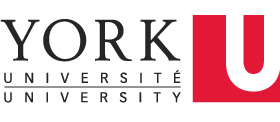Professional LLM in Criminal Law and Procedure
Description
The last 25 years have marked a period of revolutionary change within criminal law. This practice area seems to be growing ever more pervasive, with the proliferation of new crimes and quasi-criminal regulatory offences: corruption, enterprise and transnational crime, and global terrorism are blurring the distinctions drawn by national borders and between criminal law, corporate/regulatory law and matters of national security. This immensely popular and rigorous two-year, part-time program is designed to provide students with an opportunity to explore the pressing and challenging issues affecting the Canadian criminal justice system. Students will examine the historical roots of the institutions and practices to current social science and doctrinal approaches to them. The degree requirements will be satisfied upon the completion of 36 credits. There are two options for completing this degree: Option I: Coursework and Major Research Paper [36 credits]
- The required courses for Criminal Law and Procedure [18 credits];
- 12 additional credits of coursework, at least 6 of which must be courses from the Criminal Law and Procedure-related electives;
- A Major Research Paper (70 pages) in the Criminal Law and Procedure field [6 credits]; and
- Advanced Legal Research Workshop. Please note that this will not count towards the 36 credits required to complete the degree.
- Option II: Coursework Only [36 credits]
- The required courses for Criminal Law and Procedure [18 credits];
- 18 additional credits of coursework, at least 12 of which must be courses from the Criminal Law and Procedure-related electives; and
- A Significant Research Paper (30 pages) as a means of evaluation for one of the Criminal Law and Procedure required courses or related electives.
- The Advanced Legal Research Workshop is not required for students writing a Significant Research Paper but is strongly recommended in order for students to review writing and research skills. Specialization Structure: Courses will be offered in a combination of weekly and intensive formats. Videoconferencing is available for most courses, although occasional in-person attendance in Toronto is required (refer to the schedule for specific details on each course). Degree Requirements Overview: Total credits needed: 36 Note that students without a law degree from a Canadian institution are required to take Introduction to Graduate Legal Studies in their first term. For detailed degree requirements see Student Handbook. LAW 6782: Criminal Law & the Charter: Implications & Expectations LAW6781P: Issues in Criminal Law: History, Evolution & Theoretical Approaches LAW 6784P: Problems of Proof: Advanced Perspectives on the Law of Evidence LAW 6786P: The Theory and Practice of Punishment LAW 6879P: Aboriginal People and the Criminal Justice System LAW 6724: Anti-Terrorism and the Law: Current and Emerging Issues LAW 6783P: Corporate and Financial Crimes and Compliance LAW 6770P: International Criminal Law LAW 6315P: Major Research Paper: Criminal Law LAW 6780: Wrongful Convictions Note: Faculty, curriculum, course descriptions and degree requirements are subject to change without notice.
Related Courses
- Administrative Law Remedies
- Advanced Legal Research Workshop
- Corporate and Financial Crimes and Compliance
- Criminal Law & the Charter: Implications & Expectations
- Introduction to Graduate Legal Studies
- Issues in Criminal Law: History, Evolution & Theoretical Approaches
- Law of Police Oversight
- Problems of Proof: Advanced Perspectives on the Law of Evidence
- Public Inquiries
- Some Theoretical Perspectives on Public Law and Administration
Overview

- Institution: York University
- Program type: Masters Degree
- Language: English
- Program Code:
- Delivery Method: Fully Online/Distance
Disclaimer:
Check with the institution regarding start/end dates, prices, and delivery method. These may vary according to program, section, and/or semester.
Check with the institution regarding start/end dates, prices, and delivery method. These may vary according to program, section, and/or semester.
